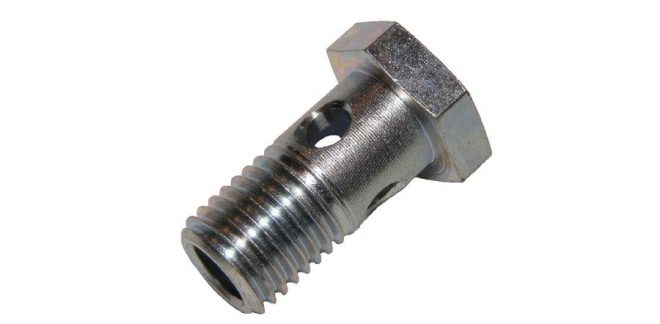
ISO certification matters more than most people realize. When critical components fail, the consequences can be devastating – production delays, safety risks, and in worst cases, catastrophic product failures that damage your reputation. These scenarios keep operations managers up at night.
Fastener suppliers often claim various credentials, but not all certifications carry the same weight or reliability. Many companies have learned the hard way that taking a supplier’s word at face value can lead to serious quality issues down the line. The difference between a properly certified supplier and one that merely claims certification might not be obvious until problems surface.
Why ISO Certification Really Matters
ISO standards aren’t just paperwork. They represent systematic approaches to quality that affect every aspect of production. For fasteners, this means:
- Consistent material properties that meet specifications
- Dimensional accuracy within accepted tolerances
- Traceability of materials used in production
- Process controls that prevent defects
- Documented testing procedures
Think about it – would you feel comfortable using fasteners in safety-critical applications if you weren’t sure how they were made or what they’re made of?
Common ISO Standards for Fastener Suppliers
Several ISO standards apply specifically to fastener manufacturing:
- ISO 9001 – General quality management systems
- ISO 14001 – Environmental management systems
- ISO 45001 – Occupational health and safety
- ISO/TS 16949 – Quality systems for automotive production (now IATF 16949)
Each standard addresses different aspects of quality and operations. A supplier might have one certification but not others. Knowing which certifications matter for your specific applications is crucial.
Signs of Legitimate ISO Certification
Not all claims of ISO certification are equal. Here’s how to verify if a supplier is truly certified:
Request the Actual Certificate
A legitimate ISO-certified company will have an official certificate from an accredited certification body. This certificate should include:
- The specific ISO standard (e.g., ISO 9001:2015)
- The certification body’s name and logo
- The scope of certification (what activities are covered)
- Issue date and expiration date
- A unique certification number
If a supplier hesitates to provide this documentation, that’s a red flag.
Verify with the Certification Body
Most certification bodies maintain online directories of certified companies. You can typically search by company name or certificate number. This step takes just minutes but can save enormous headaches later.
Look for the Accreditation Mark
Certification bodies themselves must be accredited. Look for accreditation marks from organizations like:
- ANAB (ANSI National Accreditation Board)
- UKAS (United Kingdom Accreditation Service)
- Other national accreditation bodies
Without proper accreditation, the certification might not meet international standards.
Beyond the Certificate: Signs of Real Implementation
A certificate on the wall doesn’t guarantee quality. True ISO implementation shows up in day-to-day operations. Look for these indicators:
Documented Procedures
ISO-certified suppliers should have clear, documented procedures for:
- Incoming material inspection
- In-process quality checks
- Final product testing
- Handling of non-conforming products
- Corrective and preventive actions
Ask to see examples of these procedures. Quality-focused suppliers will be transparent.
Quality Records and Traceability
Request sample quality records that demonstrate traceability. These might include:
- Material test reports
- Process control charts
- Inspection results
- Calibration records for measuring equipment
The ability to produce these records quickly suggests a well-implemented quality system.
Continuous Improvement Processes
True ISO implementation includes mechanisms for continuous improvement. Ask about:
- How customer complaints are handled
- Recent quality improvements they’ve made
- Internal audit processes
- Management review meetings
Companies that take ISO seriously can discuss these topics in detail.
Common Deceptions to Watch For
Some suppliers cut corners on certification or misrepresent their status. Watch for these warning signs:
Expired Certifications
ISO certifications require periodic reassessment, typically every three years with annual surveillance audits. Always check expiration dates.
Limited Scope Certifications
A supplier might be certified for some activities but not others. Check if the certification scope actually covers fastener manufacturing.
Certification Mill Certificates
Some disreputable certification bodies issue certificates without rigorous audits. These “certification mills” provide documentation that looks official but lacks substance.
Confusion Between ISO Compliance and Certification
Saying “we follow ISO standards” is not the same as being certified. Certification requires third-party verification.
How to Audit Your Fastener Supplier
Want to go beyond paperwork? Consider these steps for a deeper evaluation:
Site Visit and Facility Tour
Nothing beats seeing operations firsthand. During a visit, look for:
- Visual quality indicators like organization and cleanliness
- Evidence of quality procedures being followed
- Calibration stickers on measuring equipment
- Quality-related visual management boards
The physical condition of a facility often reflects the quality of its management systems.
Sample Testing and Evaluation
Test product samples against specifications. For critical applications, consider:
- Dimensional verification
- Material testing
- Performance testing under application conditions
Third-party testing labs can provide unbiased results.
Questions to Ask Your Supplier
Direct questions can reveal a lot about a supplier’s quality focus:
- How long have you been ISO certified?
- What improvements resulted from your ISO implementation?
- What happens when you find non-conforming products?
- How do you handle customer complaints?
- Can you share examples of corrective actions you’ve taken?
Listen for specific, detailed answers rather than vague generalities.
Making the Right Decision
ISO certification offers a baseline assurance of quality processes, but it’s just one factor to consider when selecting fastener suppliers. The best approach combines verification of certification with broader quality assessment.
Remember that the goal isn’t checking a box labeled “ISO certified.” The goal is finding a supplier with robust quality systems that help you avoid costly failures and delays.
The time spent verifying certification and quality systems might seem excessive for something as seemingly simple as fasteners. But when a critical application fails because of a substandard component, that investment in due diligence suddenly seems very worthwhile.
Quality isn’t expensive until you consider the alternative.
Featured Image Source: https://pixabay.com/photos/banjo-bolt-automotive-mechanic-509636